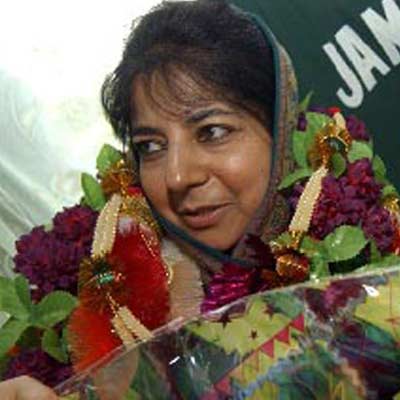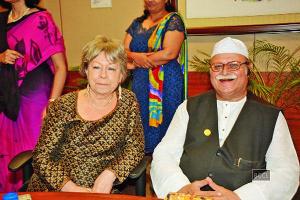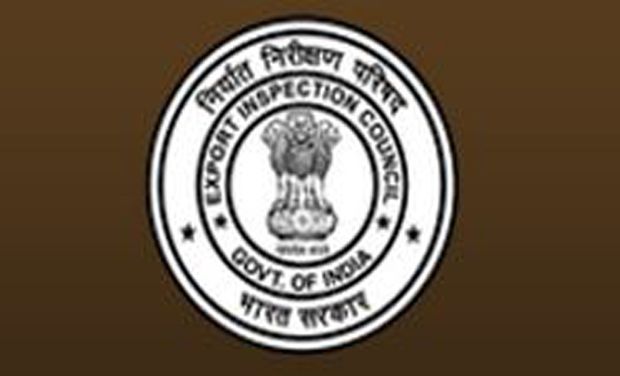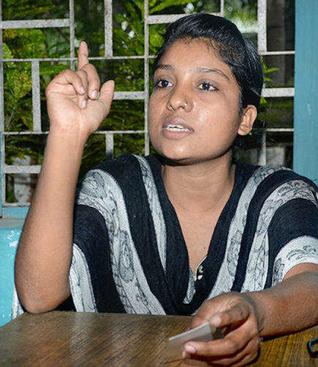
PDP leader Mehbooba Mufti today sought financial help from the Centre to rebuild health sector in Jammu and Kashmir besides a medicine bank and AIIMS-like institutes.
In the Consultative Committee of Parliament for the Ministry of Health and Family Welfare, Mufti said health sector was affected the most in recent floods and the mountainous region of the state needed fully-equipped ambulances. Health Minister Harsh Vardhan chaired the first meeting of the committee since the BJP government came to power.
The militancy-hit state also required trauma centres due to large scale violence and cases of road accidents, she said.
Mufti, whose party is in opposition in the state, also drew Vardhan’s attention to the non-functioning status of super-specialty hospitals in the state, saying only buildings exist and no patient care is available there.
She said there should be a nodal officer at the Centre to oversee the central-sponsored projects in the state and added that Centre should partner the state to provide health insurance to people. The premium of the scheme, she said, should depend of the financial status of the people.
Given the magnitude of damages, the situation calls for both material and technical intervention from the Centre to bring the health sector back on rails, Mehbooba told the Health Minister, according to a statement released in Jammu.
“Most of the vital diagnostic equipments including CT scans, X-ray plants, laboratories and blood banks at Srinagar’s referral hospitals – SMHS, Bone and Joints, Lal Ded, JVC and GB Pant – have suffered immense damage due to floods and needs to be restored on priority,” she said.
She also urged the Centre to ask the Medical Council of India (MCI) to relax the norms for J&K so that the newly sanctioned five medical colleges are made functional immediately to cope up with the shortage of doctors. She pointed out that the doctor-patient ratio in Kashmir was 1:1000, far below the World Health Organization (WHO) standard of 1:500.
Apart from medical colleges, Mehbooba also stressed on the need for paramedical institutes like nursing colleges and demanded the setting up of All India Institute of Medical Sciences (AIIMS) and a National Institute of Public Health in the state.
She also stressed the need for strengthening referral healthcare facilities at the district level by setting up integrated super-specialty, trauma, maternity, pediatric and other such institutions in the peripheries so that the patient rush is lessened at existing facilities in the urban centres.
“A major crisis witnessed during floods was that due to complete breakdown of the healthcare infrastructure in Srinagar and lack of connectivity, the patients had to be diverted to less equipped hospitals both within and outside the city,” she said.
The PDP president also drew the Centre’s attention to lack of funding for equipping health care centres with necessary infrastructure.
Due to the massive damage to major medical stores in Kashmir because of floods, there is a pressing need for ensuring adequate drug supplies to hospitals in J&K especially for patients suffering from life-threatening diseases, cancer, cardiac problems, diabetes, kidney problems, maternity problems and psychiatric disorders etc, she said.
“A drug bank should be created both at the provincial and district-levels to ensure speedy availability of quality life-saving drugs and surgical support on subsidised rates to the patients,” she said.
Mehbooba also called for moving the health sector from a “cure” to a “care” model and introducing Patient Protection and Affordable Care Act which seeks to link the quality of care with the cost of care.
“This law must seek to rebalance the system’s resource allocation and reward the value of care over volume of care,” she said.
She also called for focusing on primary healthcare with thrust on public-private participation in tertiary and super-specialty arenas.
source: http://www.dnaindia.com / DNA / Home> News> India / Place: New Delhi, Agency: PTI / Wednesday – October 15th, 2014












